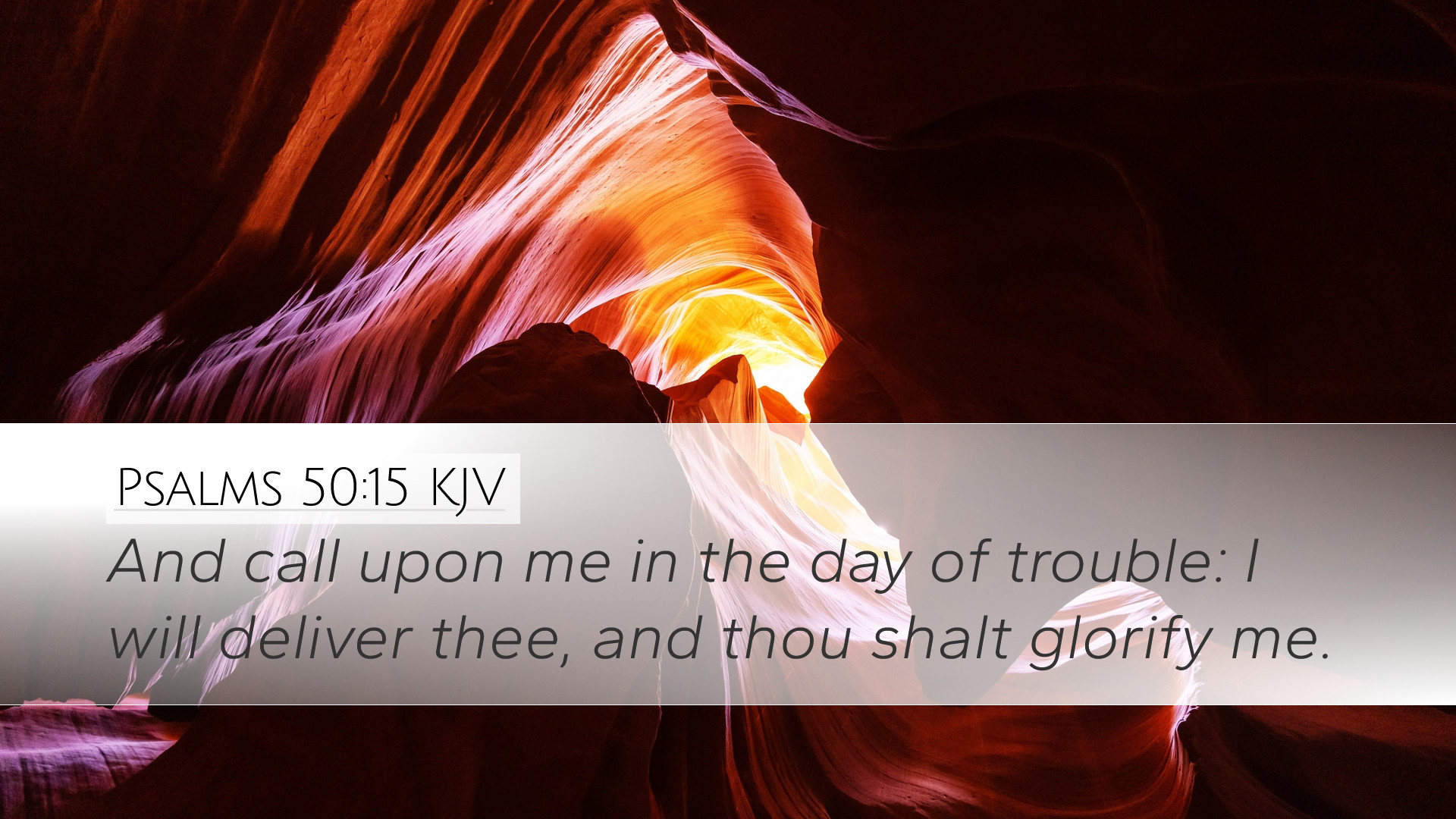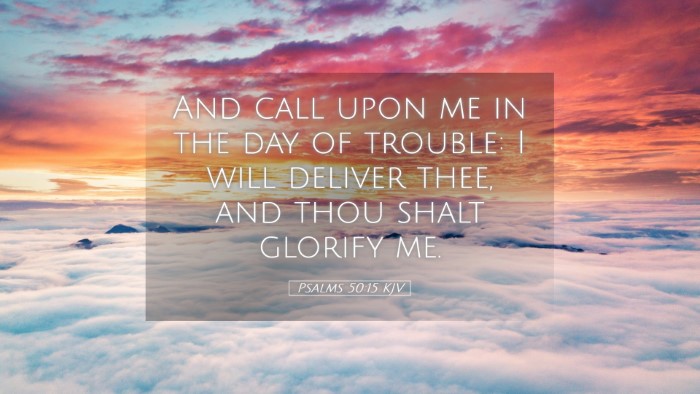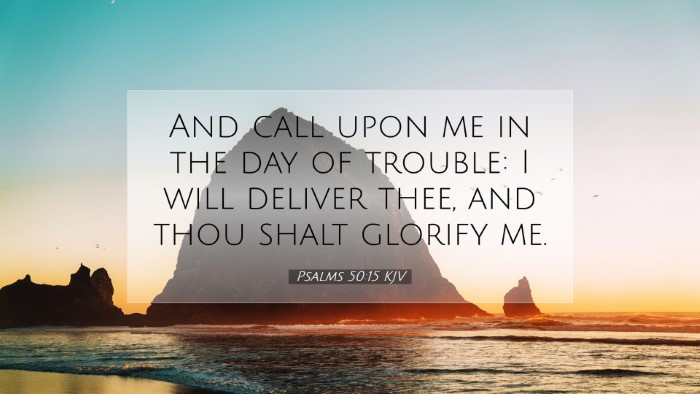Psalm 50:15 - Commentary and Insights
Verse: "And call upon me in the day of trouble: I will deliver thee, and thou shalt glorify me." (Psalm 50:15)
Contextual Overview
This verse appears in a psalm attributed to Asaph, addressing God's judgment and His relationship with His people. It is situated in a larger discourse that emphasizes the importance of sincere worship and the necessity of genuine connection with the divine.
Asaph, as the psalmist, serves as a vital witness to the workings of God among His people. This psalm highlights God’s call to His followers to seek Him authentically, especially in times of distress.
Analysis from Public Domain Commentaries
Matthew Henry
Matthew Henry emphasizes that the call to God in times of trouble is not merely a plea for rescue but an acknowledgment of God's sovereignty and mercy. He suggests that the day of trouble is a universal experience and that in these moments, it is essential for believers to turn to God.
Henry articulates that God promises deliverance when we earnestly seek Him. This act of calling upon God signifies an expression of faith, recognizing Him as the source of life and help. The promise of deliverance is accompanied by a condition: that the believer must glorify God after experiencing His salvation. This underscores the call to live a life of praise and thanksgiving.
Albert Barnes
Albert Barnes notes that calling upon God implies an active engagement in prayer and supplication during distressful times. He points out that God's response begins with the human act of calling, indicating an established relationship built through faith.
He also highlights the assurance provided by God, mentioning that deliverance is guaranteed for those who genuinely invoke His name. Barnes infers that the ultimate purpose of such deliverance is to lead the recipient to glorify God, emphasizing that this glorification is not simply the acknowledgment of God’s help, but an ongoing lifestyle of worship and obedience.
Adam Clarke
Adam Clarke offers a theological reflection on the nature of prayer in relation to divine deliverance. He supports the notion that the phrase "call upon me" suggests a deep, personal relationship with God that transcends mere ritualistic practices.
Clarke stresses the importance of the sincerity of heart when calling on God. He suggests that God’s promise to deliver is tightly linked with the believer’s disposition to give glory to God post-deliverance. He points out that it calls for an acknowledgment of God’s grace and favor in one's life, turning back to Him with grateful hearts.
Theological Implications
Psalm 50:15 invites readers into a deeper understanding of trouble as an opportunity for divine interaction. The act of calling upon God in times of need reinforces the believer's vulnerability and dependence on divine providence.
The promise of deliverance carries significant weight, not only as a reassurance of God’s faithfulness but also as an implication that the believer must respond to divine intervention with a mindset of glorification. This relationship reflects a cycle of grace: human need, divine response, and human worship.
Practical Applications for Believers
- Encouragement in Trials: Psalm 50:15 serves as a reminder that in times of trouble, believers are called to prayerfully approach God rather than relying solely on human resources.
- Importance of Faith: This passage encourages a continuous faith journey that does not waver in the face of adversity but seeks God actively through prayer.
- Commitment to Worship: Once deliverance is experienced, it is crucial for believers to remember to glorify God, establishing a pattern of worship that acknowledges His mercies.
Conclusion
Psalm 50:15 encapsulates the essence of a believer's relationship with God, particularly emphasized during times of trouble. The call to invoke God's name, the promise of deliverance, and the requisite of glorifying God depict a holistic picture of faith, characterized by reliance, gratitude, and ongoing worship. As pastors, students, and theologians delve into this verse, they are reminded of the unfailing nature of God amidst human struggles and the dynamic nature of responding to His grace with a life dedicated to glorification.


